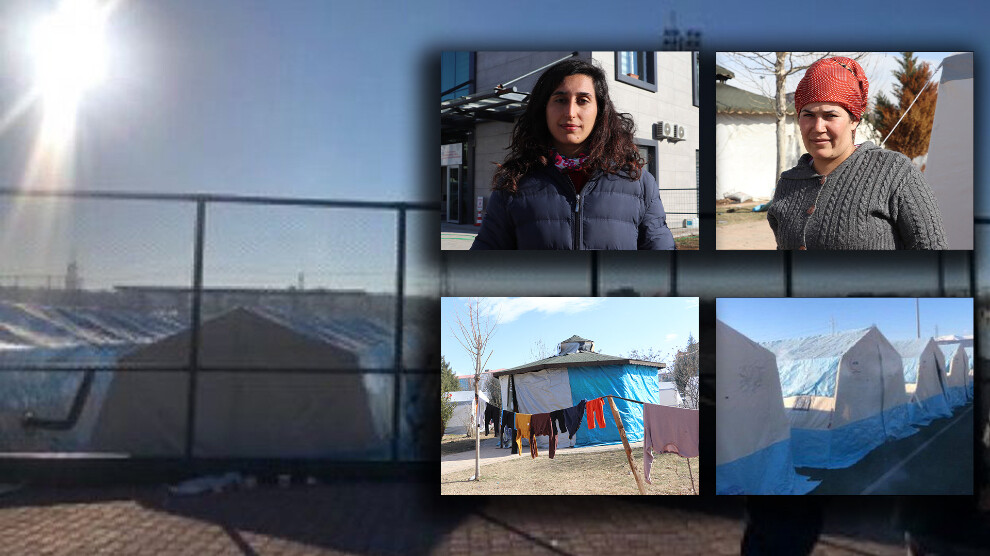Earthquake survivors face risk of fire and epidemic in tent city
The tent city of 1,500 people set up in Semsûr by AFAD after days hosts has only two portable toilets. The earthquake survivors face the risk of fire and epidemic in the tent city because there is no water.

MEDİNE MAMEDOĞLU
Semsûr- In Semsûr (Turkish: Adıyaman), where the Maraş earthquakes caused deadly damage, 1,485 buildings have collapsed, 4,085 buildings have been seriously damaged and more than 6,000 buildings must be immediately pulled down, according to the official figures. While some people, who have become homeless after the earthquakes, have stayed in a tent city of 1,500 people set up in Semsûr by Turkey's Disaster and Emergency Management Authority (AFAD), some have stayed in their cars or in shelters set up by themselves.
Only two portable toilets in the tent city of 1,500 people
In the tent city set up by the AFAD in the Eğriçay Park located in the center of Semsûr, at least five people or 15 people stay in a tent. There are only two portable toilets and people have no access to clean water in the tent city. The earthquake survivors face the risk of epidemic due to the unhygienic conditions in the tent city. The health workers monitoring the tent city say that the people face the risk of both fire and epidemic.
‘It remains dirty despite all my efforts’
The tents in the tent city were set up next to each other. Fatma Muhammed, who stays in a tent with her family of five, has to stay in the tent because they have no place to stay. She noted that their tent remains dirty despite all her efforts to clean it. “We stayed in our car for days after the earthquakes. Then, we heard that a tent city was established in our city. I have stayed in a tent with my family of five. The tent remains dirty despite all my effort to clean it. Many people, including children, stay in dirty tents.”
Tents are very close to each other
Serra Şimşek, a health worker monitoring the situation in the tent city, stated that the tents in the tent city were not set up according to the rules. She has been in Semsûr for six days to help the earthquake survivors. Noting that the earthquake survivors staying in tents set up by AFAD face the risk of both fire and epidemic, Serra Şimşek said, “The AFAD established a tent city of 1,500 people. When we visited the tent city, we saw that tents were set up next to each other. There should be a distance of two meters between the two tents; however, these tents are too close to each other. The earthquake survivors use wood burning stoves to warm themselves and their tents in the freezing temperatures. Since the tents are very close to each other, the people face the risk of fire. People also have no access to drinking and clean water. On the 10th day of the earthquakes, people still have no access to clean water and this is a very big problem.”
‘Clean water and hygienic environment must be provided’
Calling on the authorities to provide clean water and hygienic environment to the earthquake survivors living in tents, Serra Şimşek said, “Many infectious diseases can break out in the tent city at any moment. I saw only two portable toilets in the tent city. There should be at least 25 portable toilets in the tent city hosting so many people. The earthquake survivors need shelters, drinking and clean water and a hygienic environment. Their needs must be immediately provided.”
